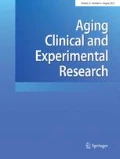Abstract
Background and aims: The prevention of errors during learning has been found to be effective in overcoming memory problems in patients with amnesia compared with errorful or trial-and-error learning, possibly as a result of intact implicit memory function. Although errorless learning is a clinically promising technique used in cognitive training settings, to date only a few studies have examined errorless learning in patients with dementia. Methods: The current study examined errorless and errorful learning using a face-name associative memory task in a group of moderate to severe dementia patients suffering from probable Alzheimer’s disease (MMSE≤22; n = 10) using a fully counterbalanced within-subject design. Results: Errorless learning had a significantly beneficial effect after two consecutive learning trials (p=0.01). However, after an unfilled delay of 10 minutes, no significant differences in memory performance were found between errorless and errorful learning. Furthermore, current effects were much smaller compared with previous findings in healthy adults and early-stage dementia patients. Conclusions: Although errorful learning resulted in better performance in a face-name associative memory task in patients with dementia, this effect was only short-lived. Thus, the beneficial effects of errorless learning are probably not due to intact implicit memory function, but may also be subserved by explicit memory, a memory system that is typically impaired in dementia. Also, the clinical applicability of errorless learning in teaching patients with moderate to severe dementia face-name associations is limited.
References
Knopman D, Scines O. Neuropsychology of dementia. In Heilman KM, Valenstein E, eds. Clinical neuropsychology, 4th ed. Oxford, UK: Oxford University Press, 2003: 574–616.
Kuzis G, Sabe L, Tiberti C, Merello M, Leiguarda R, Starkstein SE. Explicit and implicit learning in patients with Alzheimer disease and Parkinson disease with dementia. Neuropsychiatry Neuropsychol Behav Neurol 1999; 12: 265–9.
Terrace HS. Discrimination learning with and without “errors”. J Exp Anal Behav 1963; 6: 1–27.
Baddeley A, Wilson BA. When implicit learning fails: amnesia and the problem of error elimination. Neuropsychologia 1994; 32: 53–68.
Kessels RPC, de Haan EHF. Implicit learning in memory rehabilitation: a meta-analysis on errorless learning and vanishing cues methods. J Clin Exp Neuropsychol 2003; 25: 805–14.
Winter J, Hunkin NM. Re-learning in Alzheimer’s Disease. Int J Geriatr Psychiatry 1999; 14: 983–90.
Clare L, Wilson BA, Carter G, Breen K, Gosses A, Hodges JR. Intervening with everyday memory problems in dementia of Alzheimer type: an errorless learning approach. J Clin Exp Neuropsychol 2000; 22: 132–46.
Folstein MF, Folstein SE, McHugh PR. “Mini-mental state”: a practical method for grading the cognitive state of patients for the clinician. J Psychiatric Res 1975; 12: 189–98.
Clare L, Wilson BA, Carter G, Roth I, Hodges JR. Relearning face-name associations in early Alzheimer’s disease. Neuropsychology dy2002; 16: 538–47.
Tranel D, Damasio AR. Knowledge without awareness: an autonomic index of facial recognition by prosopagnosics. Science 1985; 228: 1453–4.
McKhann G, Drachman D, Folstein M, Katzman R, Price D, Stadlan EM. Clinical Diagnosis of Alzheimer’s disease: report of the NDMCDS-ADRDA Work Group under the auspices of Department of Health and Human Services Task Force on Alzheimer’s Disease. Neurology 1984; 34: 939–44
Schmand B, Bakker D, Saan R, Louman J. De Nederlandse Leestest voor Volwassenen: een maat voor het premorbide intelligentieniveau. [The Dutch Adult Reading Test: a measure of premorbid intelligence]. Tijdschr Gerontol Geriatr 1991; 22: 15–9.
Taylor R. National Adult Reading Test performance in established dementia. Arch Gerontol Geriatr 2000; 29: 291–6.
Kessels RPC, de Haan EHF. Mnemonic strategies in older people: a comparison of errorless and errorful learning. Age Ageing 2003; 32: 529–33.
Clare L, Wilson BA, Carter G, Hodges JR. Cognitive rehabilitation as a component of early intervention in Alzheimer’s disease: a single case study. Aging Ment Health 2003; 7: 15–21.
Vanderploeg RD, Yuspeh RL, Schinka JA. Differential episodic and semantic memory performance in Alzheimer’s disease and vascular dementias. J Int Neuropsychol Soc 2001; 7: 563–73.
Grandmaison E, Simard M. A critical review of memory stimulating programs in Alzheimer’s disease. J Neuropsychiatry Clin Neurosci 2003; 15: 130–44.
Hunkin NM, Squires EJ, Parkin AJ, Tidy JA. Are the benefits of errorless learning dependent on implicit memory? Neuropsychologia 1998; 36: 25–36.
Kessels RPC, Boekhorst S, Postma A. The contribution of implicit and explicit memory to the effects of errorless learning: a comparison between young and older adults. J Int Neuropsychol Soc 2005; 11: 144–51.
Author information
Authors and Affiliations
Corresponding author
Rights and permissions
About this article
Cite this article
Ruis, C., Kessels, R.P.C. Effects of errorless and errorful face-name associative learning in moderate to severe dementia. Aging Clin Exp Res 17, 514–517 (2005). https://doi.org/10.1007/BF03327420
Received:
Accepted:
Published:
Issue Date:
DOI: https://doi.org/10.1007/BF03327420

